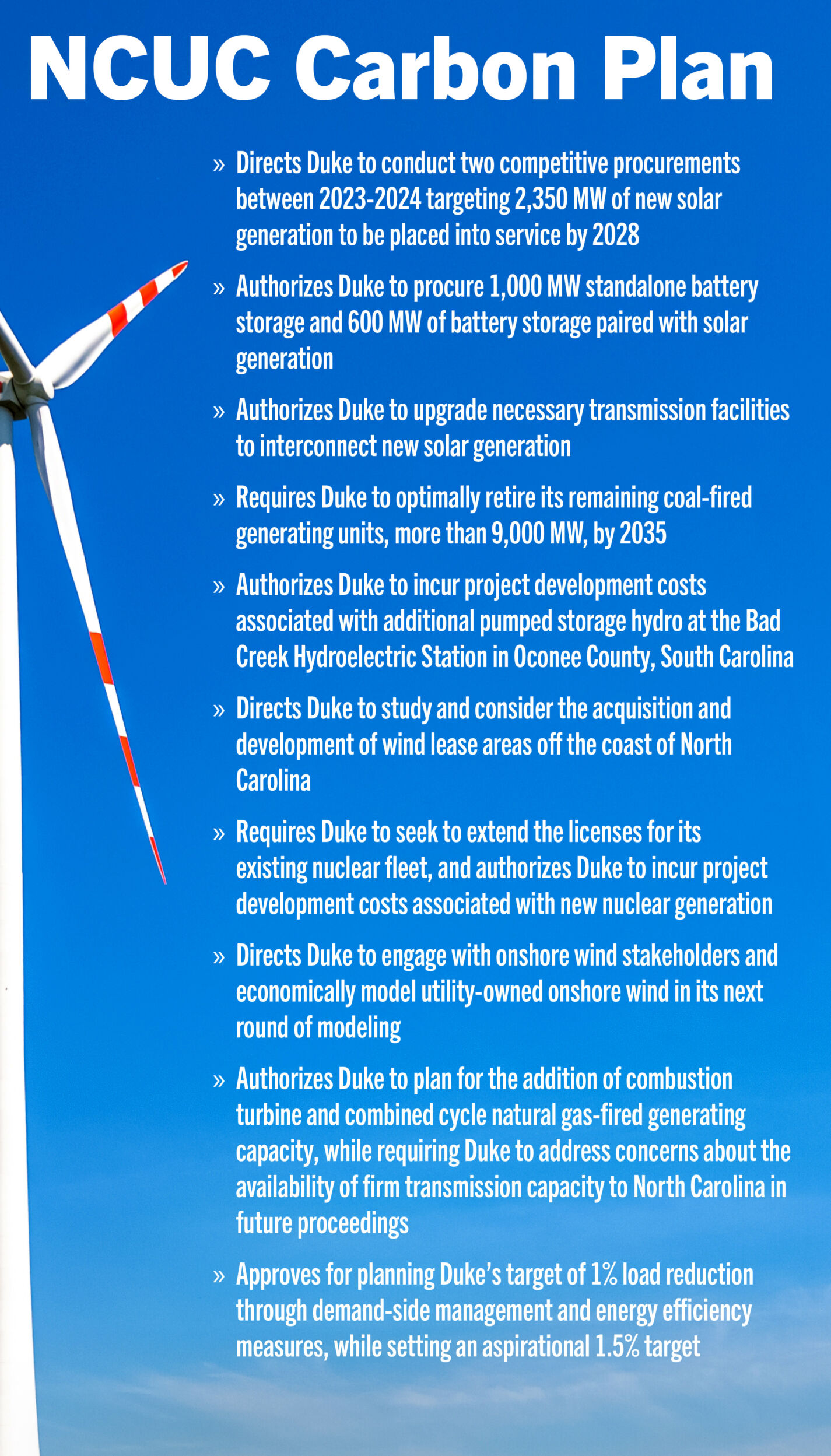On Friday, the North Carolina Utilities Commission (NCUC) released its long-awaited Carbon Plan, which aims to significantly reduce carbon emissions by 2030 and reach carbon neutrality by 2050.
The NCUC released the plan regarding the state’s major electric utility, Duke Energy, late on Dec. 30, 2022, just one day before the final deadline. Critics say the NCUC’s plan may not fully comply with House Bill 951 — which requires prioritizing reliability and affordability — and are calling for immediate oversight hearings to ensure the plan complies with the law.
“While China emits enough carbon dioxide to eliminate any gains North Carolina makes in a matter of minutes, the N.C. Utilities Commission has chosen to saddle our state’s ratepayers with an energy plan that guarantees higher bills and colder homes over the winter,” said Amy Cooke, CEO of the John Locke Foundation. “Our early analysis of the Utilities Commission’s report indicates it may not fully comply with House Bill 951, a bipartisan law passed by the General Assembly and signed by Gov. Roy Cooper.”
The NCUC has been working on the Carbon Plan for the past 14 months, as directed by the N.C. General Assembly through House Bill 951. The goal is to reduce carbon emissions by 70% from 2005 levels by 2030 and to reach carbon neutrality by 2050 while applying a least-cost standard. The NCUC appears to have given special attention to proposals from Duke Energy and the commission’s staff policy researchers.
“What North Carolinians need from this plan is what legislators enacted into law: lower CO2 emissions without making electricity expensive, unstable, and unreliable,” said Jon Sanders, director of the Center for Food, Power, and Life at the John Locke Foundation. “Electricity is a critical household need, not a luxury good, which is why it has always been state law that it be as affordable as possible and readily available at the flip of a switch.”
Sanders believes that the NCUC could keep costs reasonable and keep the grid reliable while still achieving the law’s CO2 reduction goals by adding more zero-emissions nuclear power, pumped storage, batteries, and natural-gas facilities rather than replacing working baseload power plants with “weather-dependent, fickle solar and wind generation.”
Cooke expressed concern that the plan procures large amounts of unreliable, intermittent energy sources and “shutters” 9,000 MW of baseload coal. She argued this could result in longer and more severe rolling blackouts for North Carolinians, such as those experienced on Christmas Eve.
Cooke urged decision-makers to adopt a “clean, reliable energy plan that minimizes the financial burden on ratepayers and increases grid reliability and security,” as opposed to “pander[ing] to a handful of well-funded special interest groups.”
The John Locke Foundation has suggested its own Energy Crossroads plan as an alternative.
Duke Energy, on the other hand, has expressed support for the NCUC’s plan. In a statement, the company said it believes the plan is a “constructive outcome” that advances its clean energy transition and supports a diverse range of energy sources. The company pointed out that it has already retired two-thirds of its aging coal plants in North Carolina and South Carolina and reduced emissions by more than 40% since 2005.
The NCUC’s plan is largely aligned with Duke Energy’s proposals, which faced also faced criticism when they were released. However, the NCUC’s plan is flexible, and the next review process is set to begin in September 2023.
Legislative feedback and the Inflation Reduction Act of 2022 (IRA) will likely influence the NCUC’s Carbon Plan decisions going forward. The IRA provides billions of federal dollars in tax incentives and is expected to have a major impact on infrastructure costs, although the exact affect is currently unknown.
The plan calls to retire Duke’s remaining coal-fired plants by 2035, and directs Duke to continue developing targeted plans to engage low-income, minority, and rural communities. The press release from the NCUC is available HERE.
The next review hearing is set to begin in September 2023, when the commission will hear from expert witnesses to examine the Carbon Plan proposal. The commission plans to also accept alternative proposals in early 2024 and continue holding review hearings on the proposals.
